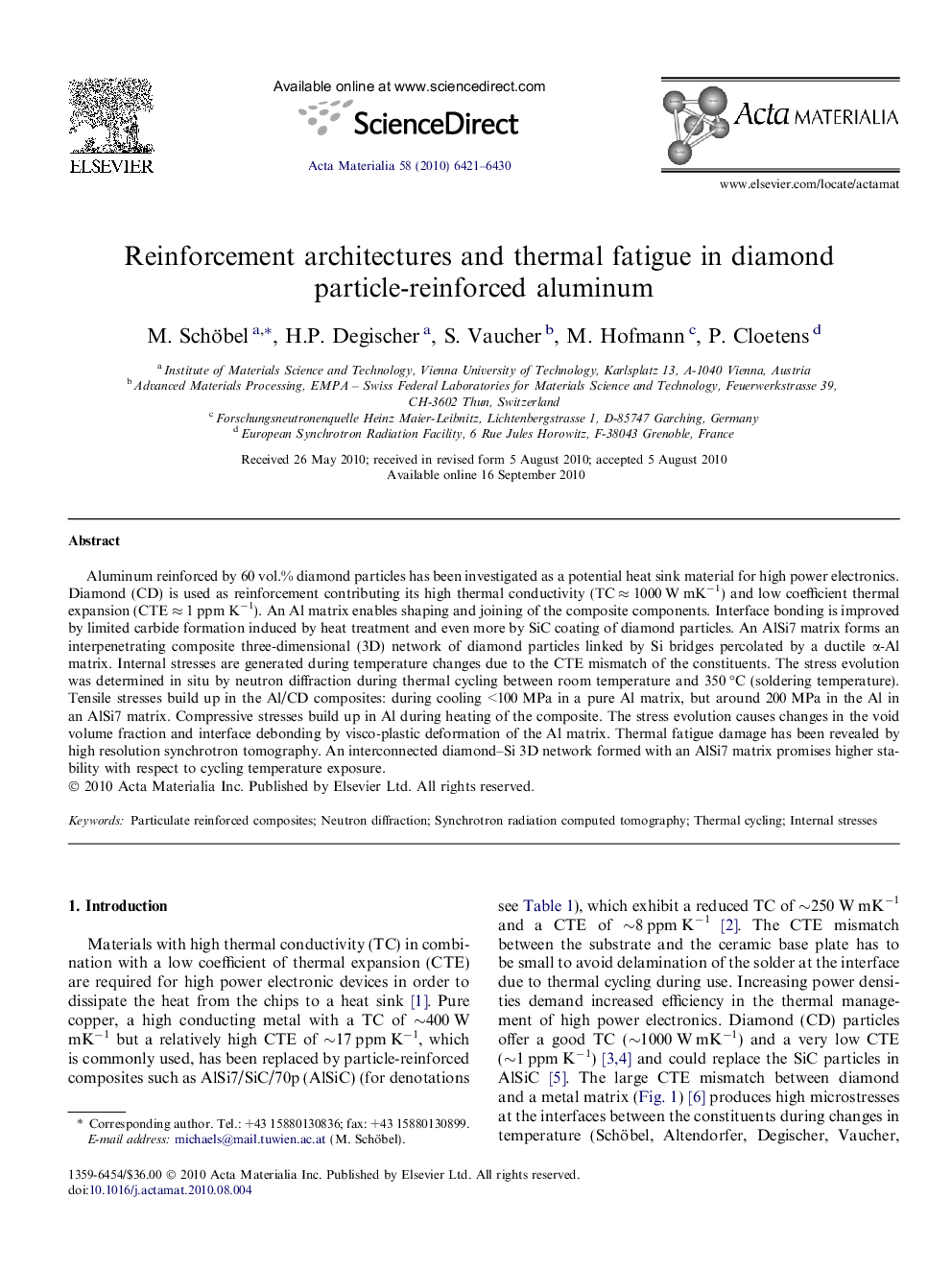| Article ID | Journal | Published Year | Pages | File Type |
|---|---|---|---|---|
| 10620671 | Acta Materialia | 2010 | 10 Pages |
Abstract
Aluminum reinforced by 60 vol.% diamond particles has been investigated as a potential heat sink material for high power electronics. Diamond (CD) is used as reinforcement contributing its high thermal conductivity (TC â 1000 W mKâ1) and low coefficient thermal expansion (CTE â 1 ppm Kâ1). An Al matrix enables shaping and joining of the composite components. Interface bonding is improved by limited carbide formation induced by heat treatment and even more by SiC coating of diamond particles. An AlSi7 matrix forms an interpenetrating composite three-dimensional (3D) network of diamond particles linked by Si bridges percolated by a ductile α-Al matrix. Internal stresses are generated during temperature changes due to the CTE mismatch of the constituents. The stress evolution was determined in situ by neutron diffraction during thermal cycling between room temperature and 350 °C (soldering temperature). Tensile stresses build up in the Al/CD composites: during cooling <100 MPa in a pure Al matrix, but around 200 MPa in the Al in an AlSi7 matrix. Compressive stresses build up in Al during heating of the composite. The stress evolution causes changes in the void volume fraction and interface debonding by visco-plastic deformation of the Al matrix. Thermal fatigue damage has been revealed by high resolution synchrotron tomography. An interconnected diamond-Si 3D network formed with an AlSi7 matrix promises higher stability with respect to cycling temperature exposure.
Keywords
Related Topics
Physical Sciences and Engineering
Materials Science
Ceramics and Composites
Authors
M. Schöbel, H.P. Degischer, S. Vaucher, M. Hofmann, P. Cloetens,
